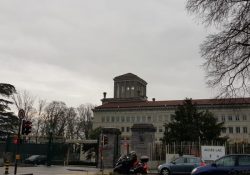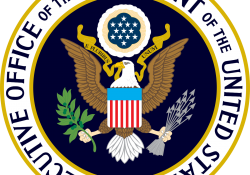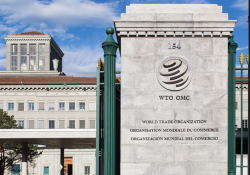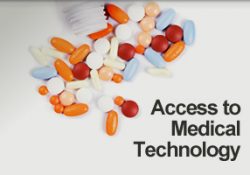March 2017 – WTO TRIPS Council – Brazil’s statement on copyright and e-commerce
At the March 2017 session of the WTO TRIPS Council, Brazil delivered the following statement on copyright and e-commerce.
1 March 2017 – WTO TRIPS Council – India’s statement on Non-Violation and Situation Complaints
On 1 March 2017, India delivered the following intervention on Non-Violation and Situation Complaints at the WTO TRIPS Council.
Agenda Item 8. Non-Violation and Situation ComplaintsMr.Chairman, my delegation would like to thank the delegation of Kyrgyz Republic for joining as co-sponsor of document W385 Rev.1.
KEI Comments filed in 2017 USTR Special 301 Review
On February 9, 2017, KEI filed written comments to the Office of the United States Trade Representative’s Special 301 Review process.
The Special 301 Review is an annual process carried out by the USTR to, “to identify countries that deny adequate and effective protection of intellectual property rights (IPR) or deny fair and equitable market access to U.S. persons who rely on intellectual property protection.”
WTO Trade Policy Review: Members question the United States on compulsory licensing, Bayh-Dole, UNHLP & Section 337
In December 2016, during the twilight of President Barack Obama’s 44th presidency, the World Trade Organization (WTO) conducted a Trade Policy Review (TPR) of the United States of America. All members of the WTO are subject to review under the Trade Policy Review Mechanism (TPRM). The TPRM takes place in the “Trade Policy Review Body which is actually the WTO General Council — comprising the WTO’s full membership — operating under special rules and procedures” (Source: WTO, Trade Policy Reviews: Brief Introduction).
SCP25: Closing Statement of the Republic of South Africa
On Thursday, 15 December 2016, South Africa delivered this poignant, closing statement at WIPO’s Standing Committee on the Law of Patents (SCP). Negotiations broke down on the issue of future work, as the European Union and Group B refused to permit discussions of the Report of the UN Secretary-General’s High-Level Panel on Access to Medicines at future sessions of the SCP.
According to the WIPO website,
9 November 2016 – WTO TRIPS Council – EU’s intervention on the Report of the UN High-Level Panel on Access to Medicines
On Wednesday, 9 November 2016, the European Union delivered the following statement at the World Trade Organization’s (WTO) TRIPS Council’s discussions of the United Nations Secretary-General’s High Level Panel Report on Access to Medicines.
UNITED NATIONS SECRETARY-GENERAL’S HIGH LEVEL PANEL REPORT ON ACCESS TO MEDICINES
The European Commission takes note of the contribution provided by the Report of the United Nations Secretary-General’s High-Level Panel on Access to Medicines.
National Association of Manufacturers told USTR the EU position on LDC extension made a mockery of international trading system
On September 10, 2015, the National Association of Manufacturers (NAM), wrote to USTR expressing alarm at the European Union support of an indefinite extension of a WTO waiver of obligations to grant patents on pharmaceuticals for UN defined least developed countries (LDCs). In 2015, there were 954 million persons living in LDCs, with a per capita income of $964, according to the World Bank. The EU had aligned itself with health advocates trying to protect the bottom billion access to life saving medicines.
Sens. Sherrod Brown and Bernie Sanders send letter to USTR condemning pressure on Colombia compulsory license for cancer drug
(More on Colombia here: /colombia)
In response to reports of USTR pressure on Colombia’s potential compulsory license for imatinib, Senators Sherrod Brown, D-Ohio, and Bernie Sanders, I-Vt., have sent a letter to USTR objecting “to any efforts to protect the public health of Colombians in a way that is appropriate, effective, and consistent with the country’s trade and public health obligations,” and condemning as unconscionable “that any representatives of the U.S. government would threaten to rescind funding for Colombia’s peace iniative if a compulsory license for Glivec were issued.” Continue Reading
Senator Hatch Defends Pressure on Colombia in Interview Regarding Imatinib
Yesterday, Colombia’s W Radio aired an interview with Senator Orrin Hatch, R-Utah, where he was asked about the reports of pressure on Colombia from the Senate Finance Committee, which he chairs, with regard to the compulsory license process for the expensive leukemia drug, imatinib.
Letter from KEI, Public Citizen, Oxfam America and Health GAP to Senator Hatch, regarding Colombia Compulsory License
Attached is a letter that KEI, Public Citizen, Oxfam America and Health GAP have sent to Senator Hatch, via the Senate Finance Committee, objecting to the pressure his office has put on Colombia over a compulsory license on patents held by Novartis for the cancer drug Gleevec. This refers to the accounts of pressure from Hatch’s office that are described in two letters from the Colombia Embassy in Washington, dated April 27 and April 28, which were recently leaked. Continue Reading





